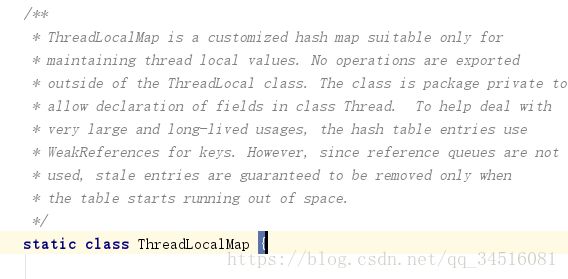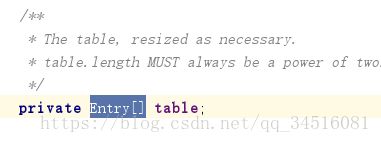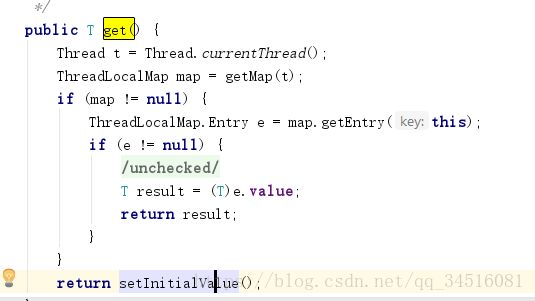在Java应用程序性能优化的领域,有多种策略可以帮助提升程序运行效率和响应速度。以下是一些实用的技巧,涵盖代码层面、JVM调优、以及设计模式等方面,旨在全面优化应用性能。1.代码层面优化避免不必要的对象创建频繁的对象创建和销毁会占用大量的CPU时间和内存资源。尽量重用对象,特别是在循环中。Java//优化前for(inti=0;i
web开发技术栈个人总结
蓝砖科技HR_金庆硕
前端
编程:Spring是一个非常强大的Java框架,被设计为帮助开发者更快速、容易地创建复杂的应用程序。Spring框架的核心是控制反转(IoC)和依赖注入(DI),它们提供了一种方法,允许开发者定义对象的依赖关系,而不是硬编码这些关系。这增加了可维护性和可测试性Spring框架有很多模块和子项目,这些可以根据应用程序的需求进行选择。下面是一些主要的Spring项目及其用途:SpringFramewo
Java 将 byte[] 转换为 File 对象
我真的不想做程序员
javajava开发语言后端数据结构算法
目录一、将byte[]转换为File对象二、完整示例三、总结在Java开发中,将字节数组(byte[])转换为文件对象(File)是一个常见的需求。这种需求常见于处理文件上传、下载以及与其他系统集成的场景。本文将详细介绍如何实现这一功能,并提供具体代码示例。一、将byte[]转换为File对象在Java中,可以使用java.io包中的File类和FileOutputStream类来将字节数组转换为
正则表达式全解析 + Java常用示例
我真的不想做程序员
算法javajava后端开发语言算法正则表达式
目录一、正则表达式基础(一)元字符(二)字符集(三)量词二、正则表达式常用示例(一)验证邮箱格式(二)验证电话号码格式(三)提取网页中的链接(四)验证日期格式(五)验证URL格式三、正则表达式在Java中的应用(一)匹配操作(二)替换操作(三)分割操作四、总结一、正则表达式基础正则表达式是一种用于匹配字符串的强大工具。它使用特定的语法来定义匹配模式,可以在文本处理、表单验证、数据提取等场景中发挥重
2025年Python生态全景:从AI霸主到量子计算,揭秘其不可替代的技术魅力
南玖yy
python人工智能量子计算
在2025年的技术浪潮中,Python凭借其极简的语法、庞大的生态系统以及跨领域融合能力,依然稳坐编程语言界的“头把交椅”。尽管Java等语言在AI领域发起挑战,但Python通过持续的技术革新和生态扩展,展现出不可撼动的生命力。本文将从技术趋势、行业应用与未来挑战三个维度,解析Python的“常青”密码。一、AI领域的持续主导:生态优势与工具革新Python在AI领域的统治地位仍未动摇。尽管有观
JavaScript 内置对象-Math对象
咖啡の猫
javascript开发语言
在JavaScript编程中,处理各种数学运算和数值操作是不可避免的任务。幸运的是,JavaScript提供了一个非常有用的内置对象——Math对象,它包含了大量用于执行常见数学任务的方法和属性。本文将详细介绍Math对象的主要特性和使用方法,帮助你更高效地进行数学相关的编程工作。一、什么是Math对象?Math是一个内置的对象,提供了对数学常量和函数的访问。与其它全局对象不同,Math不是一个构
JavaScript基础-变量的作用域
難釋懷
javascript开发语言
在学习JavaScript的过程中,理解变量的作用域是至关重要的。作用域决定了变量的可见性和生命周期,即在程序的哪些部分可以访问这些变量。正确理解和应用变量作用域不仅能帮助编写更清晰、更高效的代码,还能避免一些常见的编程错误。本文将详细介绍JavaScript中的变量作用域概念、类型及其应用场景。一、什么是作用域?作用域(Scope)是指变量的有效范围,在这个范围内,变量是可以被访问和使用的。Ja
rapidocr-onnxruntime库及在open-webui上传PDF 图像处理 (使用 OCR)应用
原野AI
大模型部署pdfocr深度学习open-webui
背景rapidocr-onnxruntime是一个跨平台的OCR库,基于ONNXRuntime推理框架。目前已知运行速度最快、支持最广,完全开源免费并支持离线快速部署的多平台多语言OCR。缘起:百度paddle工程化不是太好,为了方便大家在各种端上进行ocr推理,我们将它转换为onnx格式,使用Python/C++/Java/Swift/C#将它移植到各个平台。名称来源:轻快好省并智能。基于深度学
Java多线程与高并发专题——原子类和 volatile、synchronized 有什么异同?
黄雪超
技术基础java开发语言并发编程
原子类和volatile异同首先,通过我们对原子类和的了解,原子类和volatile都能保证多线程环境下的数据可见性。在多线程程序中,每个线程都有自己的工作内存,当多个线程访问共享变量时,可能会出现一个线程修改了共享变量的值,而其他线程不能及时看到最新值的情况。原子类和volatile关键字都能在一定程度上解决这个问题。例如,当一个变量被volatile修饰后,对该变量的写操作会立即刷新到主内存,
Vue3使用ECharts入门示例
牧小七
Vueecharts前端javascript
ApacheECharts介绍一个基于JavaScript的开源可视化图表库。官方网址使用示例第一步:NPM安装EChartsnpminstallecharts--save第二步:使用EChartsimport*asechartsfrom'echarts';constmain=ref()consttu=()=>{//基于准备好的dom,初始化echarts实例varmyChart=echarts.
以下列举了一些典型的JavaScript网页设计实例,它们展示了多样化的功能和交互体验,非常适合初学者及中级开发者学习借鉴如下:
一一代码
javascript
1.动态导航栏-功能描述:创建响应导航栏,当用户滚动页面时,导航栏固定在页面顶部,并显示当前页面部分。-技术点:-`window.scroll`事件监控页面滚动。-`classList`动态添加/移除CSS类。-`IntersectionObserver`检测元素是否进入视口。-示例代码:```javascriptwindow.addEventListener('scroll',()=>{cons
【Java网络编程】OSI七层网络模型与TCP/IP协议簇
xiaoli8748_软件开发
网络通信网络tcp/ip网络协议
1.1、OSI七层网络模型OSI七层网络模型中,每层的功能如下:应用层:人与计算机网络交互的窗口。表示层:负责数据格式的封装,如加密、压缩、编解码等。会话层:建立、终止、管理不同端间的会话连接。传输层:提供端到端(两台机器)之间的传输机制,以及提供流量控制、出错效验。网络层:逻辑寻址,IP地址,在下两层的基础上向资源子网提供服务。数据链路层:负责建立和管理节点间的链路,将数据封装成帧,进行可靠传输
Java 表达式
代码先锋者
java开发语言
一、引言在Java编程中,表达式(Expression)是程序的基本组成部分之一。表达式由操作数和运算符组成,它可以计算出一个值。理解和熟练运用Java表达式对于编写高效、准确的Java程序至关重要。二、Java表达式概述表达式是由变量、常量、方法调用、运算符等组成的式子,它可以计算出一个结果。例如,1+2就是一个简单的表达式,其计算结果为3。Java中的表达式可以分为不同的类型,包括算术表达式、
SpringBoot3+Lombok如何配置logback输出日志到文件
Moshow郑锴
SpringBoot3启示录logbacklombok日志springboot
Background/RequirementSpringBoot3+Lombok如何配置logback输出日志到文件,因为我需要对这些日志进行输出,控制台输出和文件输出,文件输出是为了更好的作为AuditLog且支持滚动式备份,每天一个文件。TechnicalSolution1.确保你使用了Lombok且使用Lombok的@Slf4j注解在你的Java类中,使用Lombok提供的@Slf4j注解来
StringJoiner 详解
蓝白咖啡
Java基础Java
引言在Java8中,StringJoiner是一个用于构建由分隔符分隔的字符序列(如逗号分隔的字符串)的工具类。它提供了一种简洁、灵活的方式来拼接字符串,特别适合处理需要特定分隔符的场景。本文将详细介绍StringJoiner的特性、使用方法、优缺点以及实际应用场景。1.StringJoiner概述StringJoiner是Java8引入的一个工具类,位于java.util包中。它的主要作用是将多
Crawl4AI 与 BrowserUseTool 的详细对比
燃灯工作室
Lmplement人工智能学习数学建模
以下是Crawl4AI与BrowserUseTool的详细对比,涵盖功能、技术实现、适用场景等核心维度:1.核心定位对比工具Crawl4AIBrowserUseTool类型专为AI优化的网络爬虫框架浏览器自动化工具(模拟人类操作浏览器)核心目标高效获取结构化数据供AI训练/推理处理需要浏览器交互的动态网页任务典型应用大规模数据抓取、知识库构建登录受限网站、抓取JavaScript渲染内容2.技术实
linux常用基础命令_最新
脚大江山稳
linux运维服务器
常用命令查看当前目录下个各个文件大小查看当前系统储存使用情况查看当前路径删除当前目录下所有包含".log"的文件linux开机启动jar更改自动配置文件后操作关闭自启动linux静默启动java服务查询端口被占用查看软件版本重启关机开机启动取别名清空当前行创建文件touch创建文件夹查找文件/文件名/大小查找查看文件内容cat/more删除文件或文件夹管道符|过滤grep命令echo命令输出内容重
rust的指针作为函数返回值是直接传递,还是先销毁后创建?
wudixiaotie
返回值
这是我自己想到的问题,结果去知呼提问,还没等别人回答, 我自己就想到方法实验了。。
fn main() {
let mut a = 34;
println!("a's addr:{:p}", &a);
let p = &mut a;
println!("p's addr:{:p}", &a
java编程思想 -- 数据的初始化
百合不是茶
java数据的初始化
1.使用构造器确保数据初始化
/*
*在ReckInitDemo类中创建Reck的对象
*/
public class ReckInitDemo {
public static void main(String[] args) {
//创建Reck对象
new Reck();
}
}
[航天与宇宙]为什么发射和回收航天器有档期
comsci
地球的大气层中有一个时空屏蔽层,这个层次会不定时的出现,如果该时空屏蔽层出现,那么将导致外层空间进入的任何物体被摧毁,而从地面发射到太空的飞船也将被摧毁...
所以,航天发射和飞船回收都需要等待这个时空屏蔽层消失之后,再进行
&
linux下批量替换文件内容
商人shang
linux替换
1、网络上现成的资料
格式: sed -i "s/查找字段/替换字段/g" `grep 查找字段 -rl 路径`
linux sed 批量替换多个文件中的字符串
sed -i "s/oldstring/newstring/g" `grep oldstring -rl yourdir`
例如:替换/home下所有文件中的www.admi
网页在线天气预报
oloz
天气预报
网页在线调用天气预报
<%@ page language="java" contentType="text/html; charset=utf-8"
pageEncoding="utf-8"%>
<!DOCTYPE html PUBLIC "-//W3C//DTD HTML 4.01 Transit
SpringMVC和Struts2比较
杨白白
springMVC
1. 入口
spring mvc的入口是servlet,而struts2是filter(这里要指出,filter和servlet是不同的。以前认为filter是servlet的一种特殊),这样就导致了二者的机制不同,这里就牵涉到servlet和filter的区别了。
参见:http://blog.csdn.net/zs15932616453/article/details/8832343
2
refuse copy, lazy girl!
小桔子
copy
妹妹坐船头啊啊啊啊!都打算一点点琢磨呢。文字编辑也写了基本功能了。。今天查资料,结果查到了人家写得完完整整的。我清楚的认识到:
1.那是我自己觉得写不出的高度
2.如果直接拿来用,很快就能解决问题
3.然后就是抄咩~~
4.肿么可以这样子,都不想写了今儿个,留着作参考吧!拒绝大抄特抄,慢慢一点点写!
apache与php整合
aichenglong
php apache web
一 apache web服务器
1 apeche web服务器的安装
1)下载Apache web服务器
2)配置域名(如果需要使用要在DNS上注册)
3)测试安装访问http://localhost/验证是否安装成功
2 apache管理
1)service.msc进行图形化管理
2)命令管理,配
Maven常用内置变量
AILIKES
maven
Built-in properties
${basedir} represents the directory containing pom.xml
${version} equivalent to ${project.version} (deprecated: ${pom.version})
Pom/Project properties
Al
java的类和对象
百合不是茶
JAVA面向对象 类 对象
java中的类:
java是面向对象的语言,解决问题的核心就是将问题看成是一个类,使用类来解决
java使用 class 类名 来创建类 ,在Java中类名要求和构造方法,Java的文件名是一样的
创建一个A类:
class A{
}
java中的类:将某两个事物有联系的属性包装在一个类中,再通
JS控制页面输入框为只读
bijian1013
JavaScript
在WEB应用开发当中,增、删除、改、查功能必不可少,为了减少以后维护的工作量,我们一般都只做一份页面,通过传入的参数控制其是新增、修改或者查看。而修改时需将待修改的信息从后台取到并显示出来,实际上就是查看的过程,唯一的区别是修改时,页面上所有的信息能修改,而查看页面上的信息不能修改。因此完全可以将其合并,但通过前端JS将查看页面的所有信息控制为只读,在信息量非常大时,就比较麻烦。
AngularJS与服务器交互
bijian1013
JavaScriptAngularJS$http
对于AJAX应用(使用XMLHttpRequests)来说,向服务器发起请求的传统方式是:获取一个XMLHttpRequest对象的引用、发起请求、读取响应、检查状态码,最后处理服务端的响应。整个过程示例如下:
var xmlhttp = new XMLHttpRequest();
xmlhttp.onreadystatechange
[Maven学习笔记八]Maven常用插件应用
bit1129
maven
常用插件及其用法位于:http://maven.apache.org/plugins/
1. Jetty server plugin
2. Dependency copy plugin
3. Surefire Test plugin
4. Uber jar plugin
1. Jetty Pl
【Hive六】Hive用户自定义函数(UDF)
bit1129
自定义函数
1. 什么是Hive UDF
Hive是基于Hadoop中的MapReduce,提供HQL查询的数据仓库。Hive是一个很开放的系统,很多内容都支持用户定制,包括:
文件格式:Text File,Sequence File
内存中的数据格式: Java Integer/String, Hadoop IntWritable/Text
用户提供的 map/reduce 脚本:不管什么
杀掉nginx进程后丢失nginx.pid,如何重新启动nginx
ronin47
nginx 重启 pid丢失
nginx进程被意外关闭,使用nginx -s reload重启时报如下错误:nginx: [error] open() “/var/run/nginx.pid” failed (2: No such file or directory)这是因为nginx进程被杀死后pid丢失了,下一次再开启nginx -s reload时无法启动解决办法:nginx -s reload 只是用来告诉运行中的ng
UI设计中我们为什么需要设计动效
brotherlamp
UIui教程ui视频ui资料ui自学
随着国际大品牌苹果和谷歌的引领,最近越来越多的国内公司开始关注动效设计了,越来越多的团队已经意识到动效在产品用户体验中的重要性了,更多的UI设计师们也开始投身动效设计领域。
但是说到底,我们到底为什么需要动效设计?或者说我们到底需要什么样的动效?做动效设计也有段时间了,于是尝试用一些案例,从产品本身出发来说说我所思考的动效设计。
一、加强体验舒适度
嗯,就是让用户更加爽更加爽的用你的产品。
Spring中JdbcDaoSupport的DataSource注入问题
bylijinnan
javaspring
参考以下两篇文章:
http://www.mkyong.com/spring/spring-jdbctemplate-jdbcdaosupport-examples/
http://stackoverflow.com/questions/4762229/spring-ldap-invoking-setter-methods-in-beans-configuration
Sprin
数据库连接池的工作原理
chicony
数据库连接池
随着信息技术的高速发展与广泛应用,数据库技术在信息技术领域中的位置越来越重要,尤其是网络应用和电子商务的迅速发展,都需要数据库技术支持动 态Web站点的运行,而传统的开发模式是:首先在主程序(如Servlet、Beans)中建立数据库连接;然后进行SQL操作,对数据库中的对象进行查 询、修改和删除等操作;最后断开数据库连接。使用这种开发模式,对
java 关键字
CrazyMizzz
java
关键字是事先定义的,有特别意义的标识符,有时又叫保留字。对于保留字,用户只能按照系统规定的方式使用,不能自行定义。
Java中的关键字按功能主要可以分为以下几类:
(1)访问修饰符
public,private,protected
p
Hive中的排序语法
daizj
排序hiveorder byDISTRIBUTE BYsort by
Hive中的排序语法 2014.06.22 ORDER BY
hive中的ORDER BY语句和关系数据库中的sql语法相似。他会对查询结果做全局排序,这意味着所有的数据会传送到一个Reduce任务上,这样会导致在大数量的情况下,花费大量时间。
与数据库中 ORDER BY 的区别在于在hive.mapred.mode = strict模式下,必须指定 limit 否则执行会报错。
单态设计模式
dcj3sjt126com
设计模式
单例模式(Singleton)用于为一个类生成一个唯一的对象。最常用的地方是数据库连接。 使用单例模式生成一个对象后,该对象可以被其它众多对象所使用。
<?phpclass Example{ // 保存类实例在此属性中 private static&
svn locked
dcj3sjt126com
Lock
post-commit hook failed (exit code 1) with output:
svn: E155004: Working copy 'D:\xx\xxx' locked
svn: E200031: sqlite: attempt to write a readonly database
svn: E200031: sqlite: attempt to write a
ARM寄存器学习
e200702084
数据结构C++cC#F#
无论是学习哪一种处理器,首先需要明确的就是这种处理器的寄存器以及工作模式。
ARM有37个寄存器,其中31个通用寄存器,6个状态寄存器。
1、不分组寄存器(R0-R7)
不分组也就是说说,在所有的处理器模式下指的都时同一物理寄存器。在异常中断造成处理器模式切换时,由于不同的处理器模式使用一个名字相同的物理寄存器,就是
常用编码资料
gengzg
编码
List<UserInfo> list=GetUserS.GetUserList(11);
String json=JSON.toJSONString(list);
HashMap<Object,Object> hs=new HashMap<Object, Object>();
for(int i=0;i<10;i++)
{
进程 vs. 线程
hongtoushizi
线程linux进程
我们介绍了多进程和多线程,这是实现多任务最常用的两种方式。现在,我们来讨论一下这两种方式的优缺点。
首先,要实现多任务,通常我们会设计Master-Worker模式,Master负责分配任务,Worker负责执行任务,因此,多任务环境下,通常是一个Master,多个Worker。
如果用多进程实现Master-Worker,主进程就是Master,其他进程就是Worker。
如果用多线程实现
Linux定时Job:crontab -e 与 /etc/crontab 的区别
Josh_Persistence
linuxcrontab
一、linux中的crotab中的指定的时间只有5个部分:* * * * *
分别表示:分钟,小时,日,月,星期,具体说来:
第一段 代表分钟 0—59
第二段 代表小时 0—23
第三段 代表日期 1—31
第四段 代表月份 1—12
第五段 代表星期几,0代表星期日 0—6
如:
*/1 * * * * 每分钟执行一次。
*
KMP算法详解
hm4123660
数据结构C++算法字符串KMP
字符串模式匹配我们相信大家都有遇过,然而我们也习惯用简单匹配法(即Brute-Force算法),其基本思路就是一个个逐一对比下去,这也是我们大家熟知的方法,然而这种算法的效率并不高,但利于理解。
假设主串s="ababcabcacbab",模式串为t="
枚举类型的单例模式
zhb8015
单例模式
E.编写一个包含单个元素的枚举类型[极推荐]。代码如下:
public enum MaYun {himself; //定义一个枚举的元素,就代表MaYun的一个实例private String anotherField;MaYun() {//MaYun诞生要做的事情//这个方法也可以去掉。将构造时候需要做的事情放在instance赋值的时候:/** himself = MaYun() {*
Kafka+Storm+HDFS
ssydxa219
storm
cd /myhome/usr/stormbin/storm nimbus &bin/storm supervisor &bin/storm ui &Kafka+Storm+HDFS整合实践kafka_2.9.2-0.8.1.1.tgzapache-storm-0.9.2-incubating.tar.gzKafka安装配置我们使用3台机器搭建Kafk
Java获取本地服务器的IP
中华好儿孙
javaWeb获取服务器ip地址
System.out.println("getRequestURL:"+request.getRequestURL());
System.out.println("getLocalAddr:"+request.getLocalAddr());
System.out.println("getLocalPort:&quo



